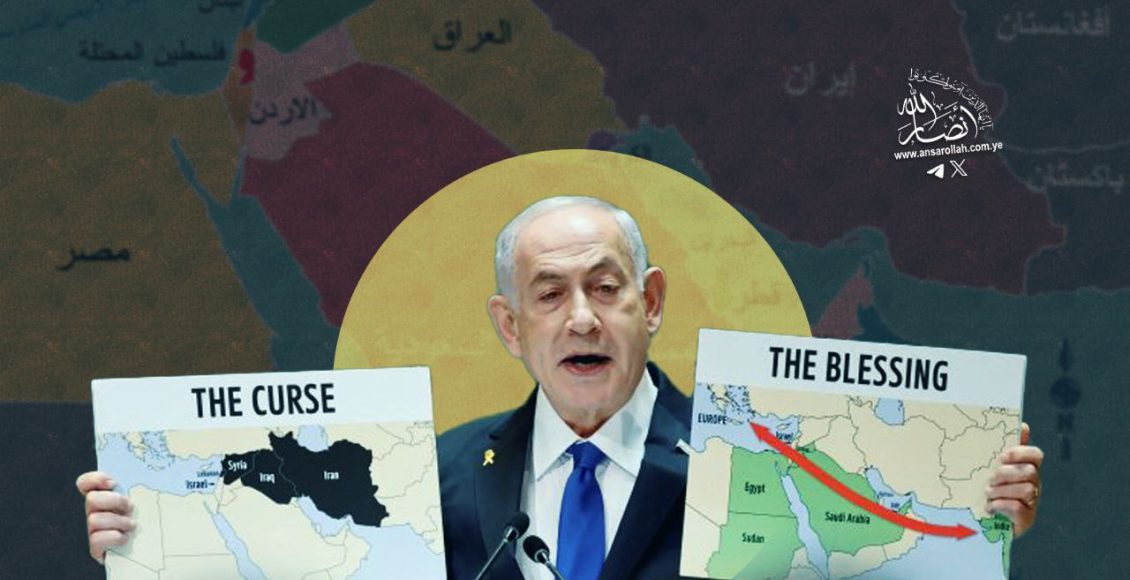The persistent and systematic targeting of Arab and Islamic nations reveals the extent of subjugation imposed on regional regimes. Despite blatant acts of degradation and destruction, these regimes continue to cling to the West's Western "humanitarianism," American rhetoric, and illusions of peace with the Israeli enemy.
With the onset of the Al-Aqsa Flood operation and even earlier, Sayyid Abdulmalik Badruldeen al-Houthi warned of catastrophic scenarios resembling or surpassing Syria's current plight. His warnings, rooted in Quranic principles, foresee the outcomes of today’s actions. They perceive matters in their true and realistic context, America—responsible for killings, genocide, and promoting terrorism against Arabs and Muslims—cannot be trusted as a stabilizing force or moral authority.
Syria is one of many casualties of the plot to redraw the so-called "New Middle East." The Zionist entity is voraciously carving out its portion of Syria, while Arab regimes remain spectators—either blind to the unfolding implications or deliberately indifferent, driven by fear, weakness, or a misplaced belief in their alliances with America and Israel.
Syria's Fragmentation: a U.S. Strategy
What is happening in Syria—and could occur elsewhere in the Arab world—is not a victory for its people but a triumph for American objectives. The chaos is deliberate, creating a region engulfed in perpetual conflict, ideal for ensuring dominance. Syria’s fragmentation into 37 factions is a testament to this strategy, with each vying for political, social, and cultural control. This disunity signals prolonged instability, perfectly aligning with U.S. aspirations for the region.
America emphasizes the right of every faction to shape Syria’s future, knowing full well this ensures division and disagreement. The resulting chaos weakens the state, leaving it vulnerable to exploitation and incapable of resistance.
Meanwhile, the proliferation of factions attracts external interference. Each group maintains ties to foreign backers, ensuring Syria’s sovereignty remains undermined. This fragmentation serves the Israeli enemy’s interests, enabling territorial expansion and cementing control over regional decisions.
The Zionists Escalate and Pose Regional Threat
Following the fall of the Assad regime, Israel swiftly moved to claim buffer zones in the Golan Heights, advancing toward Damascus. Reports from Reuters and the Syrian Observatory for Human Rights confirm Israeli forces penetrating 25 kilometers southwest of Damascus and reaching Qatana, just 10 kilometers from the capital’s outskirts.
Simultaneously, Israel launched attacks of over 300 airstrikes targeting critical infrastructure, including research facilities, missile depots, airports, and prisons. The strikes spanned Damascus, Aleppo, Hama, and Homs, leaving widespread devastation. Israel justifies its actions as preemptive measures to prevent weapons from reaching extremists, but its true intent is territorial consolidation and permanent occupation.
UN spokesperson Stéphane Dujarric condemned these actions as violations of the 1974 disengagement agreements, though Criminal Netanyahu has dismissed these accords, insisting the newly occupied territories will remain under Israeli control indefinitely.
Arab Silence and Complicity
The political bureau of Ansar Allah condemned the Zionist aggression as a blatant violation of Syria’s sovereignty and an attempt to impose a new reality. They warned that the escalation would not stop at Syria but could spread across the region, emboldened by unwavering U.S. and Western support.
The absence of an Arab response to these violations highlights a deeper malaise. Allowing Israel to operate unchecked in Syria not only betrays the Syrian people but sets a dangerous precedent. The lack of resistance to this aggression—be it condemnation or tangible action—reflects a level of passivity that invites further exploitation.
Moreover, the sectarian and ethnic divisions exacerbated by foreign interventions threaten to fragment Arab societies further, undermining unity and resistance. This cycle of disunity and betrayal only facilitates external domination, making each Arab state more vulnerable to collapse.
The Need for Sovereignty and Unity
To counter these conspiracies, Arab and Islamic nations must break free from foreign and western dependence and focus on internal unity. Any transformation must originate from within, driven by national interests and the collective will of the people. External interventions, especially those led by adversaries, only serve to undermine sovereignty and prolong instability.
A reliance on foreign powers like America or Israel has historically brought only weakness and failure. Sustainable progress can only be achieved through self-reliance, equitable international relations, and rejecting subservience.
Conclusion
Israel’s aggression in Syria is part of a broader agenda to reshape the region to suit American and Zionist interests. The Arab and Islamic worlds must confront these conspiracies with clarity and determination. Failure to act decisively risks the continued erosion of sovereignty, dignity, and regional stability.







